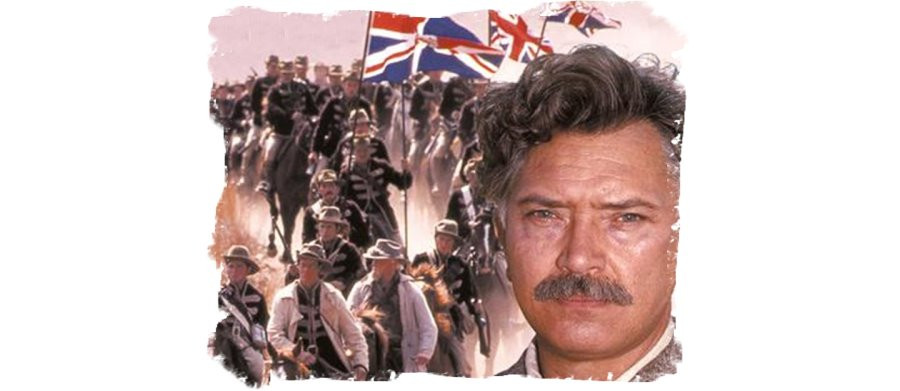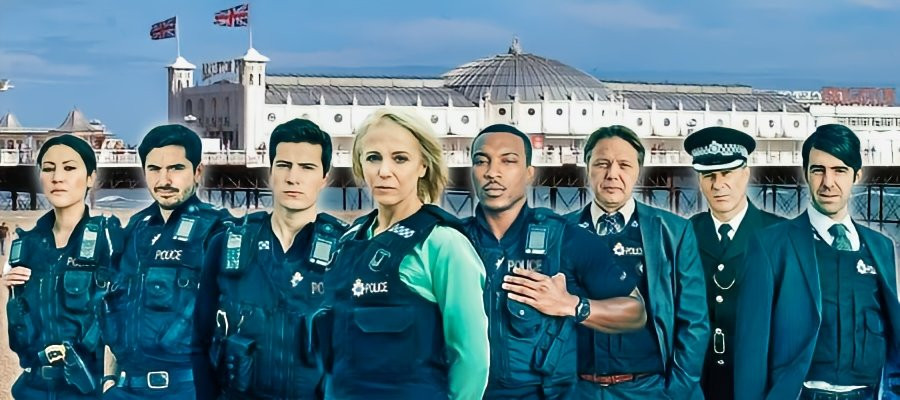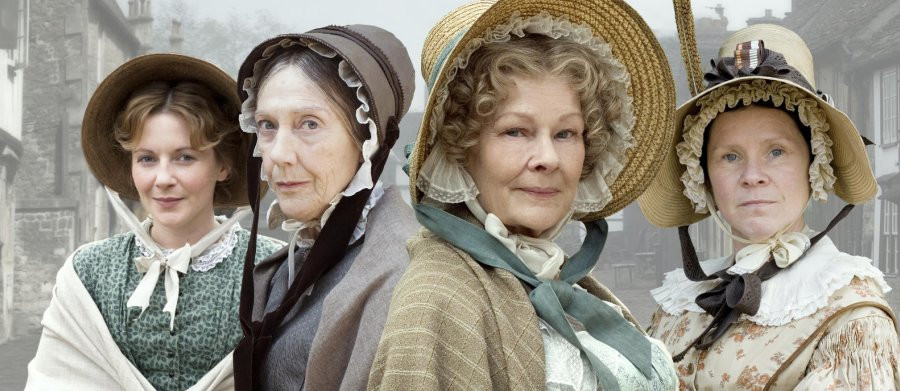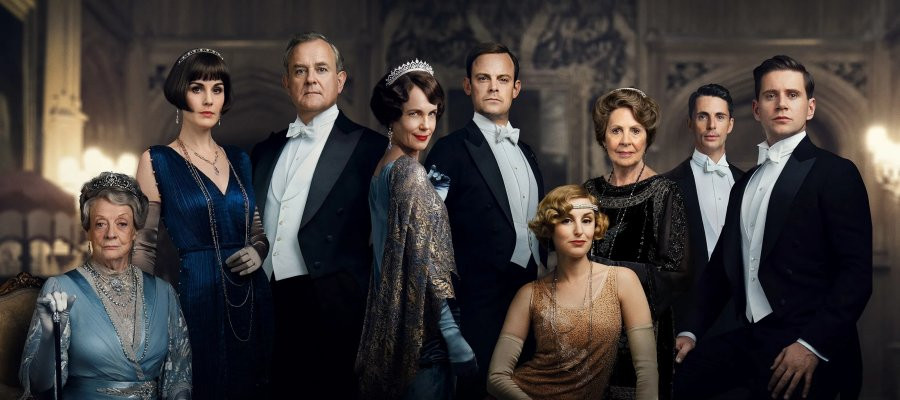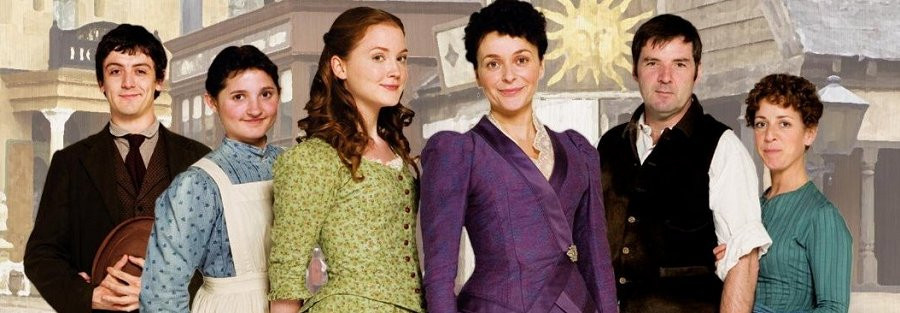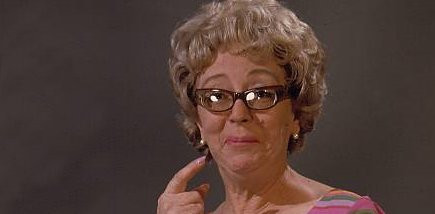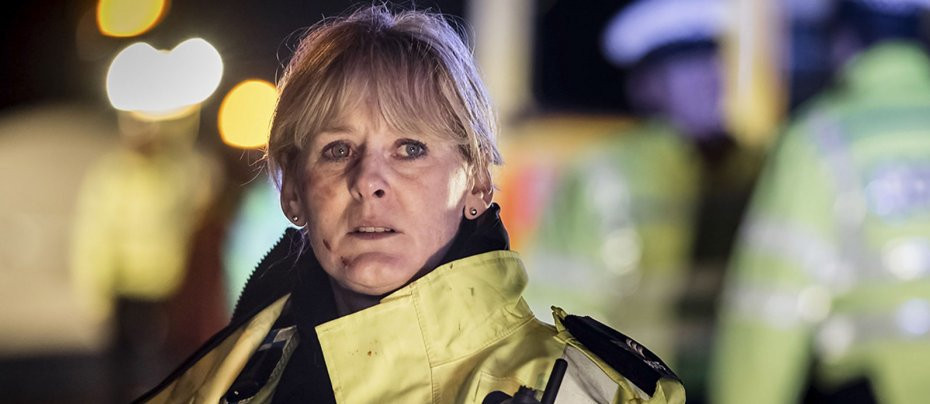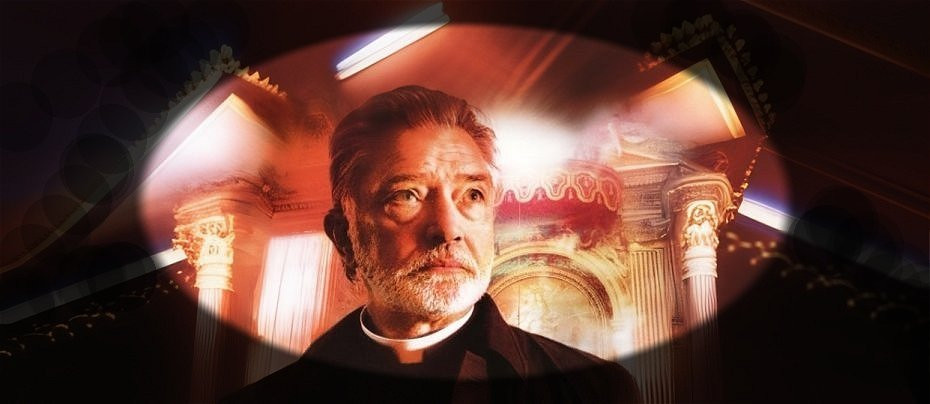
Apparitions
2008 - United KingdomSupernatural drama series about a priest who is working to promote candidates for sainthood and becomes drawn into the world of exorcism as he discovers a dark battle between good and evil
Review by John Winterson Richards
While in retrospect it seems almost inevitable these days that The Exorcist eventually had a television spin-off, in many ways the real televisual heir to the classic film is the BBC's earlier Apparitions, which had nothing to do with the official franchise. Its six episodes concern the adventures of Jacob Myers, played by Martin Shaw, the Rector of a Roman Catholic Seminary who is also an official Exorcist, and, like the original film version of The Exorcist, they are very effective in setting the supernatural horror of demonic possession against the background of the everyday modern world to deliver a particular jarring tone. Where most horror keeps the viewer at a safe distance, Apparitions leaves us with an uneasy feeling that this is something that could happen in real life.
It also takes full advantage of the greater space of the television format to explore the broader context of demonic possession to an extent which the feature film had no time to do. At one level, it shows the paradoxical position of the Vatican, an organisation run by a worldly bureaucracy which is ruthlessly practical and rational, but which nevertheless owes its authority to the assumption that the Supernatural exists, and which is ideologically obliged to accept that miracles, demonic possession, and exorcism are physically possible.
This conflict is shown very early at a meeting at the Congregation for the Causes of Saints, a genuine department whose main function is to debunk spurious miracles in support of candidates for canonisation. There is a cynical air to the proceedings, and the actual Congregation, since retitled the Dicastery, for the Causes of Saints is indeed one of the most sceptical groups in the world: at the time of writing they have recently tightened the standards for eligible miracles because the last thing they want is for Saints to be discredited by association with fraud. The mindset required for this work sits uneasily with the very existence of specialist Exorcists, who are supervised by a separate hierarchy. So there is a bureaucratic turf war superimposed on the Eternal Struggle of Good and Evil.
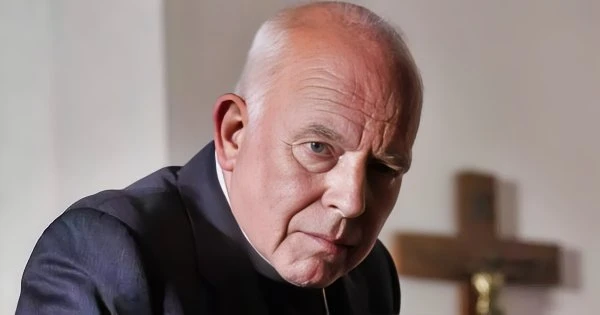
This conflict, the turf war rather than the Eternal Struggle, is personified in the clash between Jacob and the Cardinal Prefect of the Congregation. We know whose side we are meant to be on because Shaw is at his most heroic, because Cardinals are always bad guys in these things, and because this particular Cardinal is played by the late, great John Shrapnel, who always excels at antagonistic authority figures. Yet the Cardinal is given an understandable point of view. He dislikes Exorcists because he wants the Church to move on from medieval associations with the Crusades and the Inquisition. When he describes them as liking to think of themselves as charismatic mavericks defying the bureaucracy, it seems a tellingly accurate description of our hero, whose studied humility suppresses a definite intellectual arrogance.
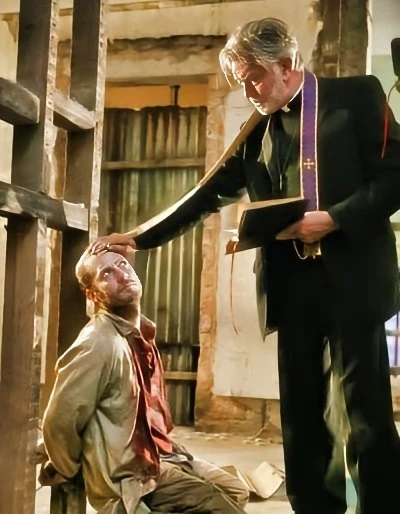
At the same time, on an individual level, we see the psychological impact on believers and non-believers alike of witnessing events so far beyond their experience that they challenge their whole perception of reality. In particular, how does someone who has lived with a vocation based on faith-not sight, cope when he actually sees something literally incredible?
Several individual cases are linked by a story arc that has more in common with The Omen than The Exorcist by implying that they are all part of a much bigger play by the Powers of Darkness. There are even hints that the bureaucratic squabbles are themselves part of this Apocalyptic conflict - there is a clever resolution to this particular aspect of the plot.
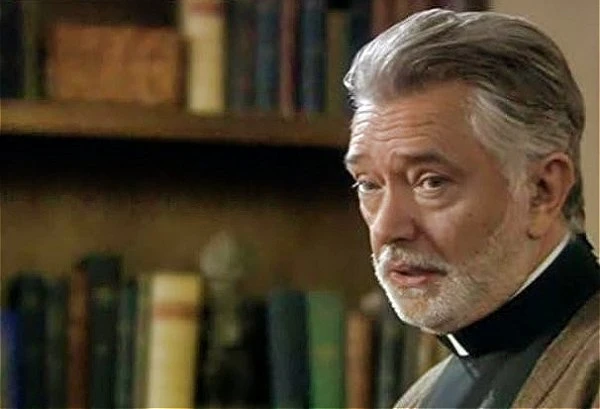
Jacob is at the centre of everything and it is, refreshingly, made clear how this is no coincidence. Martin Shaw delivers one of his best performances as a man to whom the paranormal is perfectly normal. It is fair to say that he is an actor who divides opinion, and his eclectic career provides evidence in support of contrary views of his talent: the nature of The Professionals and Judge John Deed, rather than his actual performances, may have undermined the status to which his stage work and projects like Rhodes might otherwise entitle him. In Apparitions he is at his best, with a superb portrait of a calm, authoritative natural leader, who seems, at first, perfectly in control of every situation, but whose secret sin is pride - which begins to crumble as he is put under pressure. It is like watching Gandalf being dragged to the edge of a nervous breakdown. Of course he finds hidden strength, not necessarily his own, before the end, but not before there seems to be real doubt about whether he has been broken irreparably. Like Jacob, Shaw triumphs because he resists temptation, in his case the actor's temptation to "go large" that the script offers, and the matter-of-fact way he delivers lines that could so easily have sounded portentous is a masterclass in how these things should be done.
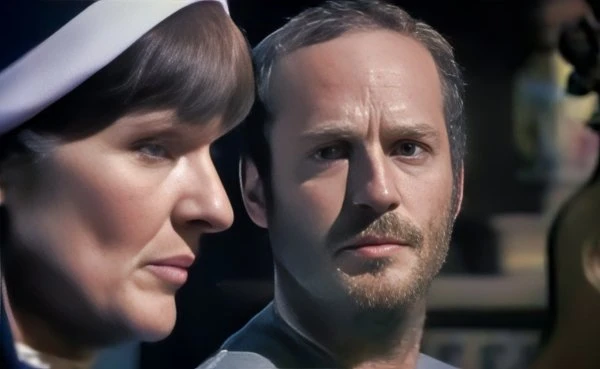
He is well supported by a strong cast. Shrapnel is always good, as is Siobhan Finneran (Happy Valley, Downton Abbey), who pulls off the difficult task of making a traditional hard faced nun more and more sympathetic until she becomes positively likeable. Rick Warden keeps us guessing about a homeless veteran. Shaun Dooley is a militant atheist having to cope with demonic possession and a saintly daughter. Shaw's Rhodes co-star Neil Pearson has a solid guest appearance as a Prison Governor. David Gyasi does well in an early role as an innocent young clergyman who is terrified by what he encounters. It is always a pleasure to see the international legend that is Vernon Dobtcheff, Cherie Lunghi is a tempting temptress, and Claire Price is set up as Jacob's ultra-rationalist foil - or is she really something completely different?
They are aided by an intelligent script by Joe Ahearne that insists on giving all the characters proper three dimensional personalities, so that none of them are predictable, and that it feels perfectly natural and unforced when one of them takes an unexpected direction. Ambiguity is embraced for once, ensuring that twists and red herrings never feel arbitrary. Different perspectives are shown honestly - one can appreciate why even demons are reluctant to return to Hell and why they seek to overthrow the order of things that condemns them to suffer there eternally. Jacob himself, as an Exorcist, is necessarily a religious traditionalist, a rarity among television heroes these days, but he is relatively liberal when dealing with homosexuality, abortion and other faiths, or at least tries to treat everyone with compassion and respect.
The script also deserves credit for being unusually well researched by recent standards. Jacob is something of a polymath, with a good working knowledge of psychology, medicine, and modern history as well as theology. This enables him to explore interesting questions that cross traditional boundaries between disciplines, like the relationship between mental health and possession, as his great literary predecessor Abraham Van Helsing does in Dracula.
Sadly, he never had the chance to do more of it. Perhaps Apparitions was too thoughtful for the usual BBC prime time audience, because it was a ratings disappointment, even if those who did watch it generally thought highly of it, so that there was little falling off once it found its level. It looks as if Jacob was intended as the next big ongoing role for Shaw, who had not long come off Judge John Deed, and the character certainly had more potential than Deed or any of the other longer running parts with which he is associated. Although the story arc of the six episodes was concluded, it was done so in a way that leaves the door open for subsequent seasons, and it would have been great to see more of the interplay between the (surviving) characters after the way they had developed and changed over the course of those episodes. As it is, Apparitions can now only be judged as a miniseries and, as such, still works very well. One cannot help feeling it was, if anything, slightly ahead of its time and would probably have found a more appreciative international audience today if it had been produced by a major streaming service.
Seen this show? How do you rate it?
Seen this show? How do you rate it?
Published on June 5th, 2024. Written by John Winterson Richards for Television Heaven.


